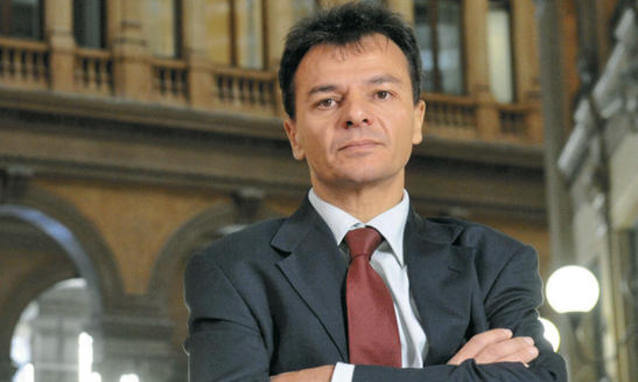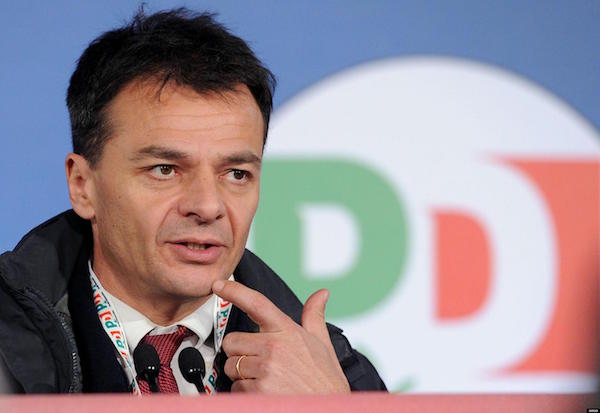This document was commonly developed by people from the Lexit Network. It was written and agreed before the Brexit referendum and was not intended to influence the popular vote one way or another.
You can also read the Appeal in English | French | German | Greek | Italian | Norwegian | Portuguese | Spanish
With the implementation of the European single market and the Maastricht Treaty, European integration was established as a neoliberal project for the long run. The Stability- and Growth Pact, the fundamental freedoms of the single market and the European monetary union, among other elements, constituted a framework that has fueled austerity policies, the dismantling of workers’ rights and the welfare state and imposed privatization throughout the EU member states.
Contrary to the theory of the EU as a neutral level playing field, the events after the Great Recession (2007/2009) have shown that the current European integration project is defined by the regressive nature of its treaties and by an unprecedented radicalization of its neoliberal character. Uneven and hierarchical power relations (core – periphery) have long been a feature of European integration, finally culminating in Germany’s dominance of the EU’s economic policy orientations after the Great Recession. The regulatory developments that accompanied the establishment of the Eurozone and the measures taken in response to the Euro crisis through the imposition of ever stricter and ever less legitimated rules and governance structures (EuroPlus-Pact, Firscal Compact, etc.) deepened the authoritarian, neoliberal nature of EU-integration. Thus, the current integration project became a threat to democracy and popular sovereignty.
The Euro – A Currency of Crises
The Euro crisis is a product of the misconceived concept and architecture of the European Monetary Union (EMU) from its start, focused on austerity and disinflation as its main targets. Instead of leading to a process of economic and social convergence of Eurozone member states, real economic development (in terms of wages, productivity etc.) drifted ever more apart. EMU was finally creating huge macroeconomic imbalances (e.g. increasing current account deficits not only in the southern EU-periphery, but also in France and Italy; huge current account surpluses in Germany and some others) and, in the first stage, led to capital flows from the EU-core to periphery. This flood of cheap money propelled speculative bubbles based on real estate, finance, and the like, and also heavily increased private and public debt.
An important factor behind the imbalances was Germany’s drive to reduce unit labour costs via re-organizing the chains of value creation for Germany’s export industries with cheaper labour from Eastern Europe, wage dumping, tax dumping and social cuts.
A consequence was a huge pressure on weaker economies to increase the international competitiveness of their industries and services. Since in the framework of EMU they could not do so with monetary policy anymore, they proceeded with internal devaluation. In practical terms, this meant dismantling of the welfare state, extensive privatization of public services and structures, wage and social dumping, tax competition, attacks on collective bargaining, attempts to disorganize unions and demonization or extensive lay-off of public workers.
The Euro – A Tool for the Benefit of Finance Capital
It is important to remark that none of this happens because of some unforeseeable construction faults in the Eurozone: The Euro works well in the sense of its neoliberal designers. It works not towards some kind of economic balance among member states, economic growth and full employment. It works towards the destruction of labor rights, social security systems, public sectors and profit taxation and towards the imposition of publicly financed bank-bailouts.
This is how the Euro works in political terms: It pushes its members into ever more downward competition in which the economic position of each member state can only be improved by policies against the majority of the population and for the benefit of international capital. It creates a downwards spiral which brings wages, pensions, social benefits, public employment, public investment, etc. to the bottom.
As the events in Greece in summer 2015 have shown quite clearly, the Eurozone governance structure is not open for policies that follow the democratically expressed view of the majority of people if they run counter to the neoliberal agenda. When the Syriza-led government tried to implement its program – strengthened by the Oxi-referendum – the ECB used its financial weapons to force the government to capitulate and sign another memorandum.
The Euro – A Bad Idea That Cannot Be Turned into a Good One
As has been proven conclusively by countless authors, the Eurozone does not meet the requirements for a functioning monetary area, nor is it to be expected that it will meet such requirements in the future. Among other measures, a functioning monetary area with very different levels of productivity and economic structures, as it is the case in the Eurozone, would require massive financial transfers in order to revert economic imbalances. Reliable analysis show that this would entail the redistribution of some 10% of Eurozone’s GDP from stronger to weaker economies, a step which is not only unfeasible in political terms, but also undesirable: As all precedents in the Eurozone have shown, the governments of donor countries would use this position to influence national policies in recipient countries, trampling on democracy. The last years showed how fast such a system undermines popular sovereignty, divides the peoples of Europe and creates room for xenophobia.
Ultimately, the option of a democratic, federal European state that does not reflect the uneven relations of power among the current member states would require a European civil society that is not given, nor can it be pushed into existence from above.
Lexit – The Way to Effectively Fight Neoliberalism and Uphold Democracy
Against the background of the alarming loss of democratic rights, dismantling of welfare states and privatization of public goods, the emancipatory forces in Europe need to propose workable, credible alternatives based on popular sovereignty to the current project of authoritarian neoliberal integration. That is why a Lexit (left exit) must be advanced as a tool to reclaim Democracy.
The alarming upturn of the far right in most Euro countries results inter alia from their position against the EU and Euro governance systems. Their political proposals are misleading: Anti-euro right forces for example are fighting for further controls over immigration while do not make any claim for controls over indiscriminate capital mobility to and from countries pursuing policies of downward wage competition. For them, it would be enough to stop free circulation of people in Europe and abandon the Euro area by leaving currencies determined by free market forces and speculation: We could call this horrendous synthesis “xenophobic neoliberalism”.
If we want to avoid this scenario, we need a Lexit: An internationalist alternative based on popular sovereignty, fraternity, social rights and defense of workers’ conditions and the commons.The unsustainability of the Eurozone is an objective fact. Sooner or later, it will impose a choice of alternative exit routes from the Euro, right wing or left wing, each of them with very different effects on the social classes involved. We explicitly state that the goal of Lexit is to develop emancipatory Left strategies to exit the Euro and to overcome neoliberal integration. The discussion has already begun and several proposals are on the table:
We invite all people who share the need for Lexit to join our discussions and campaigns! You can sign this call online: lexit-network.org.
First signatories
- Tariq Ali, author and filmmaker, UK
- Jorge Amar, Asociación por el pleno empleo y la estabilidad de precios, Spain
- Prof. em. Yangos Andreadis, Pantheion University, Greece
- Cristina Asensi, Democracia Real Ya and Money Sovereignty Commission, Spain
- Prof. Einar Braathen, Oslo and Akershus University College, Norway
- Prof. Lucio Baccaro, Université de Genève, Switzerland
- Gina Barstad, No to the EU and Socialist Left Party, Norway
- Luís Bernardo, Researcher, Portugal
- Simon Brezan, 4th Group of United Left, Slovenia
- Prof. Sergio Cesaratto, University of Siena, Italy
- Prof. Massimo D’Antoni, University of Siena, Italy
- Alfredo D’Attorre, MP Sinistra Italiana, Italy
- Fabio De Masi, MEP GUE/NGL, Germany
- Klaus Dräger, former staff of the GUE/NGL group in the EP, Germany
- Stefano Fassina, former Vice-Minister of Finance; MP Sinistra Italiana, Italy
- Prof. Scott Ferguson, University of South Florida, United States
- Prof. Heiner Flassbeck, Hamburg University, Makroskop, Germany
- Kenneth Haar, Corporate Europe Observatory, Denmark
- Idar Helle, De Facto, Norway
- Inge Höger, MP Die Linke, Germany
- Prof. Martin Höpner, Max Planck Institute for the Study of Societies, Germany
- Dr. Raoul Marc Jennar, Political scientist and author, France
- Dr. Lydia Krüger, Scientific Council of Attac, Germany
- Kris Kunst, Economy for the people, Germany
- Wilhelm Langthaler, Euroexit, Austria
- Prof. Costas Lapavitsas, SOAS University of London, UK
- Frédéric Lordon, CNRS, France
- Stuart Medina, Asociación por el pleno empleo y la estabilidad de precios, Spain
- Prof. William Mitchell, Director of Centre of Full Employment and Equity (CofEE), University of Newcastle, Australia
- Joakim Mollersen, Attac, Norway
- Pedro Montes, Socialismo 21, Spain
- Prof. Andreas Nölke, Goethe University, Germany
- Albert F. Reiterer, Euroexit, Austria
- Dr. Paul Steinhardt, Makroskop, Germany
- Steffen Stierle, Attac and Eurexit, Germany
- Jose Sánchez, APEEP, Anti-TTIP Campaign, Attac, Spain
- Gunnar Skuli Armannsson, Attac, Iceland
- Petter Slaatrem Titland, Attac, Norway
- Dr. Andy Storey, University College Dublin, Ireland
- Prof. Wolfgang Streeck, Max Planck Institute for the Study of Societies, Germany
- Diosdano Toledano, Plataforma por la salida del euro, Spain
- Christophe Ventura, Memoire des luttes, France
- Peter Wahl, Weed e.V., Scientific Council of Attac, Germany
- Erik Wesselius, Corporate Europe Observatory, Netherlands
- Prof. Gennaro Zezza, Università di Cassino e del Lazio Meridionale, Italy











